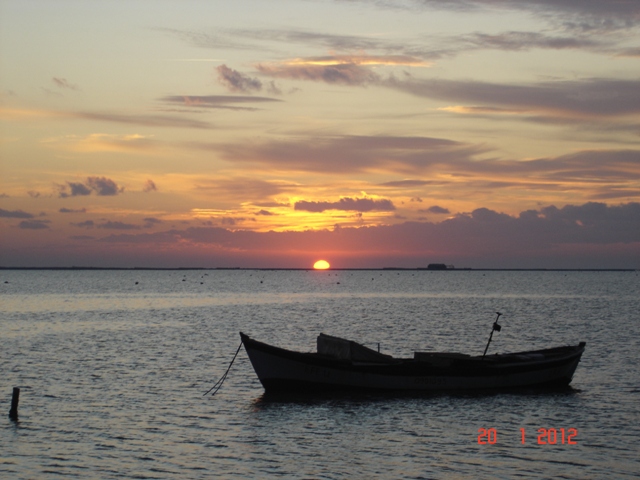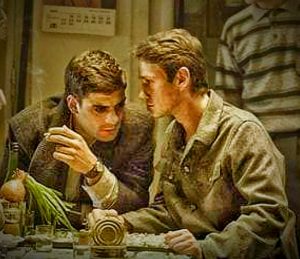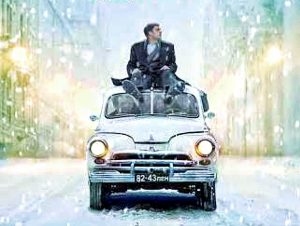"DOVLATOV"
ART AND FREEDOM

By Nevin Ulusoy
Artists, people who see life from a different perspective and make us grasp life, everyday events in the light of their torches, need their free way in this bussiness of living. When the question of freedom hangs on them, the brain, the heart is surrounded with immense trouble and “art” becomes a source of pain. Can we talk about art actually when there is a problem of freedom as it happens in “Dovlatov” movie? Can the artists’ productions be called products of art if the artist is not free in her/his comments on life?
Russian director Aleksei German’s “Dovlatov“, directed in 2018 is about famous Russian writer Sergei Dovlatov. We witness the story of his six days in Leningrad, now St. Petersburg, from 1 November 1971 to 6 November 1971 in the film. It was shown in 2018 Berlin International Film Festival for the first time. It had a Silver Bear for Outstanding Artistic Contribution for costume and production design. Milan Maric acts as Sergei Dovlatov and we see Danila Kozlovsky in the role of David, the artist, an important friend of his. We see, feel and hear the tortures in their souls through the film as they struggle to survive in this atmosphere of pressure. Nobody accepts what Dovlatov writes, he cannot have them printed anywhere. David is expelled from the academy, because he paints in the modern style, the style that the authority rejects, has fun with. A work of art is only a work of art if the authority accepts it as a work of art. Ordered art, “write positive, affirmative things.” Everything is perfect, how can one imagine writing negative things or dare to criticize anything in this perfect world? We remember Sabrina in Milan Kundera’s “The Unbearable Lightness of Being” and how she hated the pressure of the academy on them to paint “realistic” pictures.
Art, if it is going to be called art, must directly come from the spring of heart, without any influence of any kind of authority. Art, literature speaks the language of the soul or does not speak at all.
We watch the workers building a ship and they try to finish it early for the festival. They also make a film, we see an olderly woman, a worker, maybe who seems old only, talking enthusiastically about the ship, the other workers, their saying everything in the way that the governors will like. We notice their uneasiness as they express their ideas and they mention how happy, proud they are all the time, with fear in their eyes, fear of saying, meaning something wrong. We remember Milan Kundera’s “Life is Elsewhere”, the poem about a worker girl who left her lover because he was not producing enough at the factory. Infinite artistic meetings, the same questions asked again and again, the same questions the answers of which are already known. They imagine that “life is elsewhere” for them, too, in “Dovlatov” movie. An artist friend of them says he will never see Paris. They keep on saying they must leave, but they do not know whether they will be happy there or not. They talk about Hemingway, Steinbeck and Nabokov. Wonderful poet, Nobel laureate Borodsky reads his poems, they are like sweet Russian melodies. He says KGB is always threatening him. Those extraordinary misfits come together, experience their sadness, longings together, by laughing, having fun, suffering, dying.
Leningrad, full of snow, now St. Petersburg, the city built by Pedro on bogs, with the price of lives of many, the city that competes with European cities in magnificence. The riverside is foggy, Dostoyesvky’s “White Nights” comes to our minds, without a reason. The houses they live in, rotten, the flats the poorest people share. The kitchen, the place brings them together sometimes, small, old kitchen, sad chats along with the sound of a saxophone, people scattering with the scolding of a woman who is going to work in the morning shift very early. Dovlatov wants to buy a big German doll for her daughter, but cannot manage it. He is divorced, but sees his wife from time to time. The life they cannot fit in, cannot pretend to fit in with “their torn coats, their shoes with broken out soles”, the life imposed on them. Always a keen sarcasm on his face, especially in his eyes, but this life, this art he cannot repress, his writings which are not pressed because “they do not reflect the realities”, because he writes about the realities that are really experienced, hard facts, not the realities of the authority. Fortunately, his mother is always with him, a supporting friend all the time.


The film softens the hard facts with warm shades of colour, with the accompanying jazz, guitar. We have the emphasis of Van Gogh, who was appreciated after his death, we cannot help feeling the same for Dovlatov. They feel that they will not live long, always worries, always uneasiness. Everybody tells him to do what they want for money, but he just cannot do it, he does not have this capacity. He believes “literature is neither positive nor negative. There is literature or no literature.” Art, if it is going to be called art, must directly come from the spring of heart, without any influence of any kind of authority. Art, literature speaks the language of the soul or does not speak at all.
